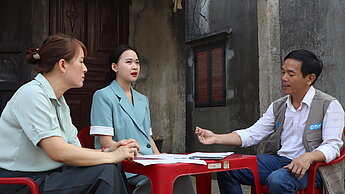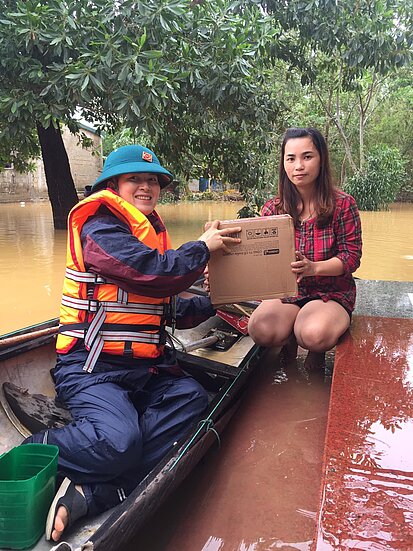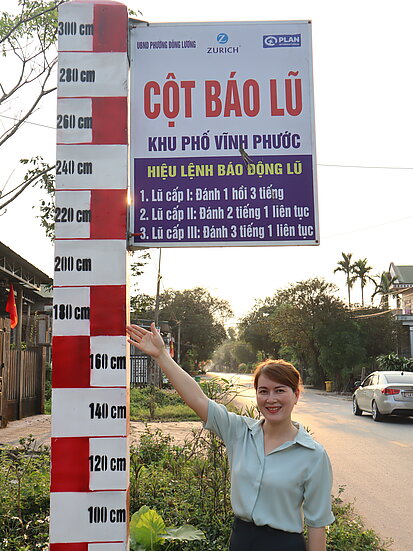Flooding has a disproportionate impact on women and girls, who are more vulnerable to health risks, disrupted livelihoods, and educational challenges. As a member of the Zurich Flood Resilience Alliance, Plan International is working with women in Quang Tri, Vietnam, to bridge this gender gap and empowering them to take on leadership roles within their communities as they work towards a more resilient future.
As the floodwaters in Quang Tri recede, a deeper, often overlooked impact on the lives of women and girls emerges. Truong Thi Lan Chi, Chairwoman of the Women's Union in Dong Luong Ward, Quang Tri Province (a socio-political organization that represents and defends the rights and interests of Women in Vietnam), revealed the intricate challenges women face after floods.
In the immediate aftermath of a flood event, people often do not have access to adequate health care. Worsened hygiene conditions can cause infectious diseases leading to often overlooked gynaecological health risks for young people who menstruate.
Truong Thi Lan Chi revealed that when floods occur, many women lose their jobs because they need to prioritize domestic and caregiving responsibilities and recovery of the community. Women experience this more often than men because of deeply ingrained cultural expectations. This gender disparity is underscored by Vietnam's current ranking 72 out of 146 countries on the World Economic Forum's Global Gender Gap Index for 2023.



